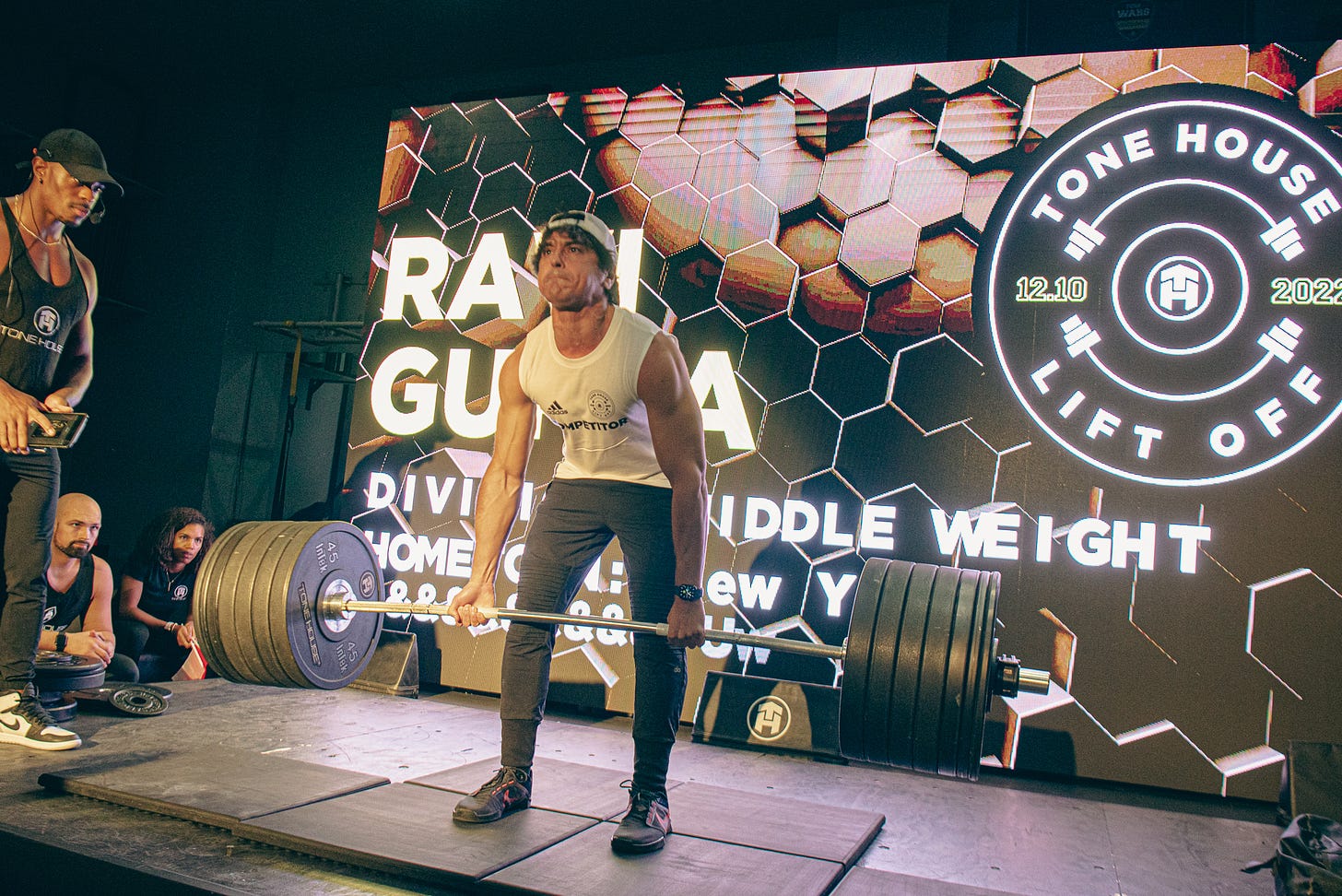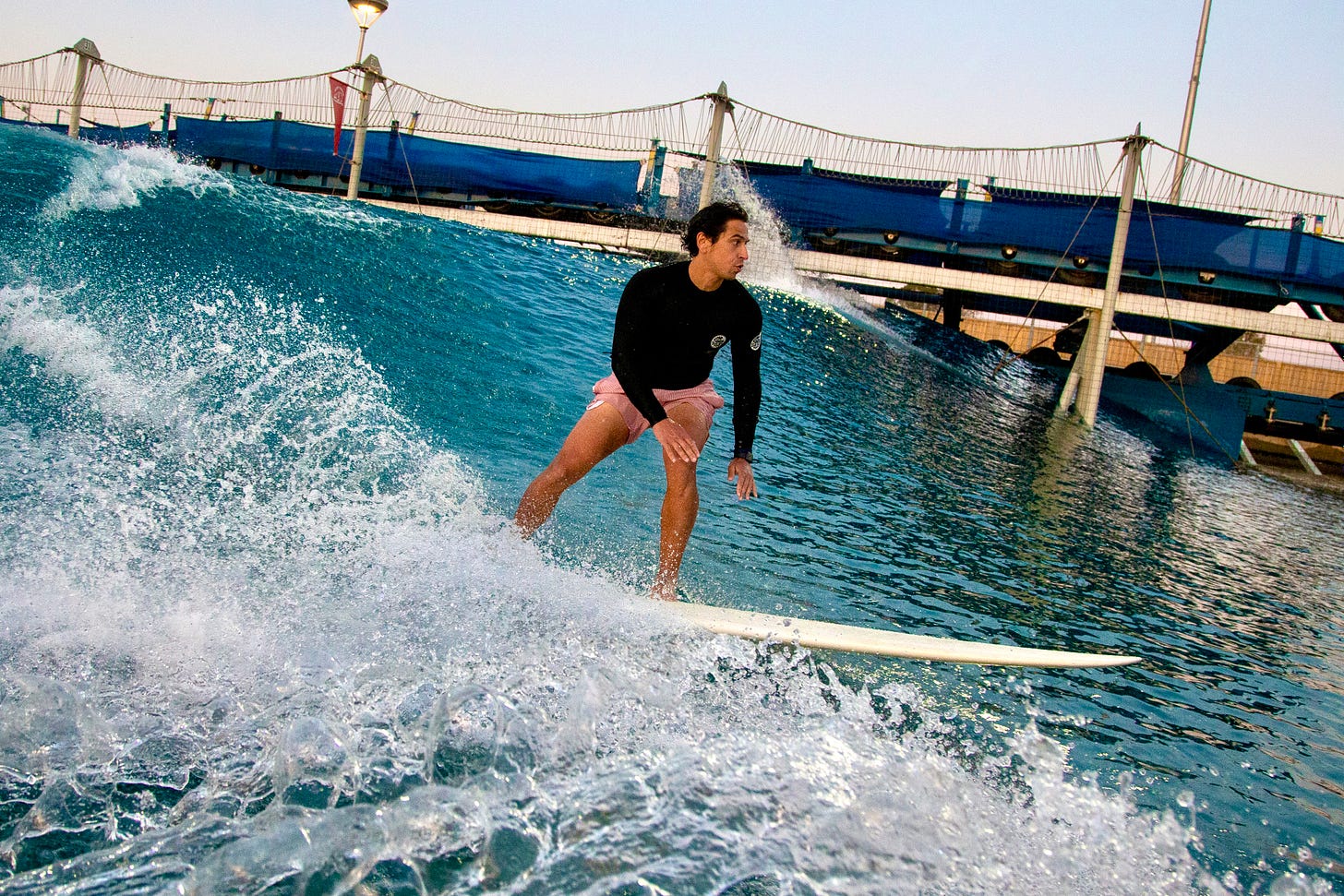I turned 40 on Friday. Coincidentally, I also moved apartments this weekend and stumbled upon old journals from over the years. Like most people, the vision I had for myself by this age is dramatically different than where I am now. No doubt, I had goals for myself that I didn’t meet. But as I leafed through those old diaries and took stock of some of my thirties’ most fulfilling moments and surprising accomplishments, I kept tracing them back to one decision I made five years ago.
Back in 2018, I was reflecting on a recurring dream I’d been having for years. Every night, I’d be back in either high school or college. This, as I’ve come to understand, is a common dream. In my version, I was over-prepared. I’d have my color-coded notes splayed out in front of me, engaged in a thoughtful discussion with my teachers and classmates. It was almost like an idealistic West Wing-esque version of school. Though the dream itself was positive, I’d wake up with a deep sense of unease because I missed the classroom experience.
I loved school. In college, I was often the first to arrive at class and would stay after to lob questions at professors. I attended every office hour I could and took advantage of every tutoring program the school offered. If I could have stayed in college forever, I would have. If I won the lottery tomorrow, I’d enroll in medical school or a neuroscience Ph.D. program.
Reflecting on my dream, I realized I’d been neglecting my love of learning. I needed to reconnect with the thrilling feeling of systematically mastering a skill or domain. I decided to choose one skill a year to obsess over and master. I wanted to select skills that I had little or no experience in — and for the past five years, I’ve gone from complete novice to intermediate or advanced in five different areas.
- Year 1: Power Lifting
- Year 2: Screenwriting
- Year 3: Surfing
- Year 4: Tennis
- Year 5: Novel writing
Below, I briefly describe how I approached each skill or hobby and how you can choose your own.
Powerlifting
I’d always lifted weights but largely focused on beach muscles. I had no experience with technical lifts like deadlifts, squats, or cleans. I spent the year taking lessons from lifting experts and even attended a camp for Olympic lifters and CrossFitters. I picked powerlifting as my first skill because I was worried that as I approached 40, I’d suffer from sarcopenia — age-related muscle loss. I wanted to learn to lift heavy in a safe way.
By the end of the year, I was proficient in every major lift. Eventually, I went on to win the deadlifting event at a powerlifting competition. I took the lessons I learned that year and built a fitness community for my friends that is now in its fourth year. Through that program, I write and track workout programs for over forty people each week — including the founder of the powerlifting camp I attended in 2018.
Screenwriting
For my second year, I wanted to pick a completely foreign (and scary) skill. I chose screenwriting because I’d never before written anything fictional but always wanted to. I figured screenwriting was a more reasonable and achievable step than writing a novel.
I started the year by reading as many scripts as I could get my hands on. Then I’d watch the movie with my annotated script in hand — watching to see how the words on the page translated to the screen.
When I was finally ready to write, I traveled to Hawaii with a director friend, and we both committed to writing a screenplay by the end of the two-week trip. I finished mine and spent two months emailing the script to one person daily. I had no Hollywood connections, so I was shooting in the dark. Luckily, on the 63rd day, I emailed my friend MC, whose sister at the time worked at Imagine Entertainment, one of the most successful production companies in the world. MC emailed her sister the script, and her sister kicked the script up to the company’s top brass. Imagine wound up passing on the script (they had a planned show set in Staten Island that they felt was too similar – though it wound up being completely different), but I was able to parlay that interest into representation from Creative Artists Agency, the biggest and most powerful agency in Hollywood. They’ve represented me to this day, and I’ve written over a dozen scripts and been hired to adapt a novel into a movie.
Surfing
Ever since I was a kid, I wanted to surf. But I was cursed to grow up on an island with unsurfable waves and in a family that didn’t have the money to travel to tropical locations. But I never gave up the dream of learning the sport.
During the heart of the 2020 election season, I vowed that after election day, I would go somewhere and finally learn to surf. A friend recommended to me a place called Surf Simply, the world’s premier surf school (listen here for my interview with the school’s founder), but warned me that they had a many-year waitlist. By a stroke of luck, the day I decided to visit their website was the day they reopened registrations after the lockdown. I was in the air to Costa Rica as the election was called for Biden. I spent the next two weeks getting my ass kicked in double overhead waves — struggling with vicious tendinitis that prevented me from staying in the water any longer than half an hour. Yet I knew I loved it.
I had planned to return to New York after the camp, but the Delta wave was raging, so I extended my stay in Costa Rica. In a second stroke of luck, Tommy Potterton, my coach at that camp, left to start his own surf school and took me on as his first customer. For the next six months, I paddled out every morning at 5am. Tommy would collect video footage of me and send me the footage by the afternoon with his audio coaching commentary over my footage. My goal for that first six months was to become a “Level 2” surfer, which meant I wanted to be comfortable paddling out on my own, angling a take-off (going sideways down a wave instead of towards the beach), and executing basic turns. I was able to achieve that goal and was well on my way to “Level 3.” By the end of the year, I’d surfed in far-off destinations, including an advanced wave generated by a train. I’m now in my third year of surfing and am solidly a 3, and last week executed my first truly expert move when I got barreled.
Surfing can be a tool for longevity. I often see surfers in the water in their sixties and seventies. The balance, flexibility, and strength required for the sport perfectly matches the traits doctors recommend to avoid age-related physical decline. Most importantly, surfing is a great way to meet new friends late in life. When you paddle out, you leave your phone behind and spend hours in the water chatting with people you may never otherwise meet. Speaking of…
Tennis
As I rounded the bend on my surfing year, I was in the water early one morning in my favorite surf spot and started chatting up a stranger. I told him I needed to pick a new skill for the following year. He asked what was on my shortlist, and I mentioned tennis. By yet another strange stroke of luck, it turns out he was not only a tennis coach but was a former professional tennis player and the coach of the Costa Rica Davis Cup team. He offered to teach me the sport, which is precisely what he did over the next few weeks. He put me through an intensive boot camp that involved hours a day of drills and scrimmages. When I returned to New York, I would send him videos from my matches with friends, and he’d send me feedback. I spent the year playing anyone I could and went upstate a few weekends to a tennis camp (notice the camp theme?). More than a year later, I can play with friends who’ve been playing since high school. I rarely beat them, but I’m able to keep matches competitive.
I picked tennis partly because my favorite sport to play is basketball, a hobby I’ve largely abandoned because I kept getting injured. Tennis, like surfing, is something people do into their older years — and numerous studies point to the powerful longevity benefits of racquet sports.
And like surfing, tennis was something I couldn’t access as a kid because I didn’t grow up in a neighborhood with courts or a family with the resources to expose me to it.
Novel Writing
During my year of screenwriting, I started writing a novel but abandoned it in pursuit of more achievable goals. This year, I’ve decided to pick it back up and make completing the book my focus. I am going through a similar process that I took during the screenwriting year — reading and dissecting texts from authors I respect. I also take a weekly seminar conducted by one of my favorite authors. My goal is to finish the book by the end of the year. This has been the most difficult of the skills because I don’t just want to be intermediate; I want the book to be excellent. I often lose confidence and momentum when I inevitably and frequently fall short of my own expectations. I’m constantly reminding myself of this Ira Glass quote:
Nobody tells this to people who are beginners. I wish someone told me. All of us who do creative work, we get into it because we have good taste. But there is this gap. For the first couple years you make stuff, it’s just not that good. It’s trying to be. It has potential. But your taste — your taste is still killer. And your taste is why your work disappoints you.
A lot of people never get past this phase. They quit. Most people I know who do interesting creative work went through years of this. Our work doesn’t have this special thing that we want it to have. We all go through this. And if you’re just getting started or you are still in this phase, you gotta know it’s normal, and the most important thing you can do is do a lot of work. Put yourself on a deadline, so that every week, you will finish one project. It is only by going through a volume of work that you will close that gap and your work will be as good as your ambitions. It’s gonna take awhile. You’ve just gotta fight your way through.
I’ve taken his advice and am submitting one chapter weekly to an editor. If I miss a deadline, she will donate money in my name to the Patrick Maholmes Foundation (I am a Bills fan).
Lessons Learned: The Four C’s
Looking back, there are certain themes to what has made each year successful. I call them the “Four C’s.”
Camps: Camps are a fun way to accelerate learning. I attended a powerlifting camp, surf camp, and tennis camp. I am currently in a writing seminar, which includes a two-hour block when I write alongside peers. The experience of intensive, social learning that camps and classes provide is invaluable. Of course, the cost can be prohibitive, but you can often find low-cost alternatives, like meet-up groups and apps (e.g., here’s an app that sets people up to play tennis with each other, and here’s one to help you find writing partners).
Coaches: Find mentors, and pay it forward in areas where you excel. I have been fortunate to find world-class coaches in each domain I’ve studied. This isn’t reasonable for most people, but you can find excellent coaching in almost every town in America — often for free or at a low cost. The CrossFit coach in your local box, the resident novelist teaching a class at the community college, the friend who’s mastered a sport you’ve been afraid to try. There’s also a wealth of online coaches to choose from.
Community: The hard work becomes easy when you do it with people you love and respect. Seek out people who are at or around your skill level. Learn and practice together, share tips, and motivate one another to stay the course. I would have never finished my first screenplay if I hadn’t committed with a friend to do so. I would have never stuck with surfing if I didn’t find a welcoming community of intermediate surfers who paddled out at the same spot every morning. If you can’t find the community you’re looking for, build one yourself. That’s what I did when I built a fitness community for my friends.
Commitment: When you start a new skill, stick with it for at least a year. Even if you feel totally demoralized, honor that commitment to yourself. You’ll find that most obstacles aren’t as intimidating as you originally believed — and that a few days or weeks of spinning your wheels will eventually give way to momentum. Under my framework, you can abandon each skill or hobby at the end of the first year, but thankfully I’ve kept up with all of mine thus far and made them a central part of my life.
Your Oxygen Mask
This is a newsletter for people interested in education. Many of you are school leaders or leaders of organizations or companies. Much of your energy goes into thinking about how to better teach those around you, whether they be kids or employees. Ask yourself: are you spending enough time on your own learning? As the now-cliche metaphor goes, you must affix your oxygen mask before worrying about those around you. That means rekindling your love of learning, that rush of going from clueless to proficient.
You may read this and think of all of the excuses. Your busy schedule, budget, children, and physical limitations. These are all important considerations that may limit what skill you choose and how much time you can devote to it. I, for example, have long wanted to learn to fly airplanes, but I don’t live near a place where it’s cost-effective to do so. But we can’t let these limitations stop us. I think of my mom, who always dreamed of becoming a history professor but had three kids to raise by herself on a nurse’s salary. She took night classes and eventually earned her bachelor’s and then master’s degree from the College of Staten Island, where she is now a professor of American history.






